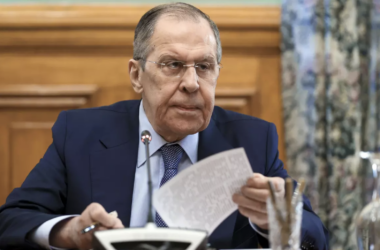Spanish Prime Minister Pedro Sánchez is facing mounting backlash in Brussels over alleged corruption scandals and accusations of undermining democratic principles.
The European People’s Party (EPP), led by Partido Popular (PP) leader Alberto Núñez Feijóo, has voiced sharp criticism of Spain’s socialist government, with Feijóo calling out Sánchez’s “anti-democratic drift” during a recent EPP summit in Berlin.
Feijóo claimed the EPP is united in condemning Sánchez’s administration, citing concerns about corruption and rule-of-law violations. He hinted that the EU might impose sanctions similar to those applied to Hungary and Poland, potentially freezing billions in EU funds. “The message is obvious: you don’t play with democracy,” Feijóo declared.
One of the most significant allegations involves the “Koldo” case, where former transport minister José Luis Ábalos, a close ally of Sánchez, is accused of embezzling €30 million in EU funds. Additionally, Sánchez’s wife, Begoña Gómez, has been linked to influence-peddling scandals, with accusations that the prime minister obstructed justice to shield her.
Sánchez is also criticized for consolidating power. These alleged power grabs include a controversial amnesty deal with Catalan separatists to secure his government’s survival, and turning Spain’s public broadcaster into what critics call a propaganda outlet. Feijóo has even likened Sánchez to former dictator Francisco Franco, accusing him of censorship and targeting judges, journalists, and dissenting voices.
Efforts to challenge Sánchez domestically have hit roadblocks. The PP and national conservative Vox (PfE) pushed for a no-confidence motion in parliament, but they lack the necessary support from Catalan separatist parties. Although the Junts party briefly threatened to back the motion, it is expected to back down in exchange for concessions from Sánchez.
Unable to topple the government at home, the PP has shifted its focus to Brussels, using the EPP’s influence to apply pressure. Feijóo’s comments about “the entire EPP” being concerned about Spain’s democratic integrity highlight an effort to escalate the issue on an international stage. However, this move risks straining relations between the EPP and the Socialists & Democrats (S&D) group, longtime allies in the European Parliament. Sánchez’s PSOE, the largest member of S&D, plays a key role in maintaining this alliance, making direct action against him unlikely.
Ultimately, Feijóo’s campaign against Sánchez appears more symbolic than actionable. The EPP can criticize Sánchez publicly but is unlikely to risk its power in Brussels by escalating tensions with S&D to the point of sanctions.




